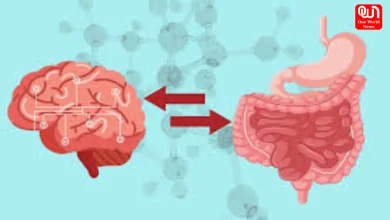The Impact of Excessive Protein Consumption on Heart Health
While protein is critical for health, eating immoderate amounts, in particular from positive assets, may have bad implications for coronary heart health.
Eating this much protein can be bad for your heart health
Out Of the macronutrients, protein is perhaps the most important one since it plays a vital role in building and repairing tissues, maintaining immune function, and preserving overall health. Nevertheless, protein intake if consumed at high doses may also show an adverse effect on the health of the heart. Protein is normally good for us if consumed sensibly as part of a balanced diet plan, but overconsumption can be dangerous, e.g., cause accelerated cardiovascular risk factors.
Potential Risks of Excessive Protein Intake: The application of technology and chemicals in agriculture has granted access to more reliable and productive methods of food production.
High Saturated Fat and Cholesterol Content
Specific animal-based protein assets like red meat, processed meat, and full-fat dairy products are rich in saturated fats and cholesterol. Eating larger amounts of fats is associated with a rise in LDL cholesterol (low-density lipoprotein), commonly known as “bad” cholesterol, which is a recognized heart disease risk factor.
Read More :- Heart attack considerably raises risk of other health issues: Research
Increased Risk of Hypertension
Diets which are high in protein and a lot of it from animals may increase the blood pressure. Excessive intake of protein causes more production of urea, which is a byproduct of protein metabolism and in addition, makes kidney disease more serious and blood pressure too.
Impact on Cardiovascular Function
Some studies indicate that diets excessive in animal protein can be connected to a multiplied hazard of cardiovascular disorder and negative cardiac occasions. Animal proteins, especially purple and processed meats, include compounds which include heme iron, superior glycation stop merchandise (AGEs), and inflammatory compounds, that can cause oxidative strain and inflammation in the body, contributing to cardiovascular damage.
Potential for Weight Gain and Obesity
While protein is satiating and may help sell emotions of fullness and weight management, excessive protein intake, especially from calorie-dense resources, can contribute to weight benefits and weight problems. Diets rich in animal proteins may also be better in calories and fat, increasing the danger of obesity-related conditions along with diabetes and heart sickness.
Impact on Kidney Function
Consuming huge quantities of protein can put a strain on the kidneys, as they are chargeable for filtering and excreting waste products from protein metabolism, inclusive of urea and nitrogen. Over time, excessive protein consumption might also impair kidney features and increase the threat of kidney disorder, especially in individuals with pre-current kidney situations.
Balancing Protein Intake for Heart Health:
While protein is an essential nutrient for ordinary health, it’s crucial to eat it carefully and choose resources that support coronary heart health. Here are a few pointers for balancing protein consumption:
- Diversify Protein Sources: Ensure you introduce numerous protein-rich ingredients into your meal plan, such as lean meats, poultry and fish, legumes, nuts, seeds, and plant-based protein foods like tofu. The plant-based proteins are usually lower in saturated fat and cholesterol and include such healthful components as fibre, vitamins, and minerals.
- Limit Red and Processed Meats- Decrease consumption of purple and processed meat which includes red meat, pork, bacon, sausage and deli meat which is rich in saturated fats, cholesterol and sodium. Choose low-fat beef, boneless chicken, and fish for your healthy meal choice.
- Choose Healthier Cooking Methods: Substitute these unhealthy cooking techniques such as deep-frying and frying by boiling, grilling, steaming, or sautéing to add fewer calories and fats to the food you consume.
Read More:- Can you die from a broken heart?
- Monitor Portion Sizes- Pay attention to portion sizes and intention to consume protein in appropriate amounts based totally on your individual needs and hobby degree. Consult with a healthcare issuer or registered dietitian to decide your protein necessities and make sure balanced nutrients.
- Emphasize Whole Foods- Prioritize complete, minimally processed meals over particularly processed and packaged foods, which can also comprise delivered sugars, unhealthy fats, and synthetic components. Whole ingredients offer crucial vitamins and antioxidants that aid heart fitness and universal well-being.
- Include Heart-Healthy Fats and Fiber: Incorporate coronary heart-wholesome fat from resources together with avocados, olive oil, nuts, and seeds, in addition to fibre-wealthy foods like the result, veggies, whole grains, and legumes, which could assist decrease cholesterol levels and improve cardiovascular health.
While protein is critical for health, eating immoderate amounts, in particular from positive assets, may have bad implications for coronary heart health. By balancing protein consumption, deciding on leaner and plant-primarily based sources, and prioritizing entire, minimally processed foods, people can support coronary heart health at the same time as assembling their nutritional desires. It’s essential to maintain a balanced eating regimen and lifestyle to sell average well-being and decrease the hazard of heart ailment and other persistent situations. Consulting with a healthcare company or registered dietitian can offer customized steering on nutrition and nutritional selections for top-quality coronary heart fitness.
Like this post?
Register at One World News to never miss out on videos, celeb interviews, and best reads.








